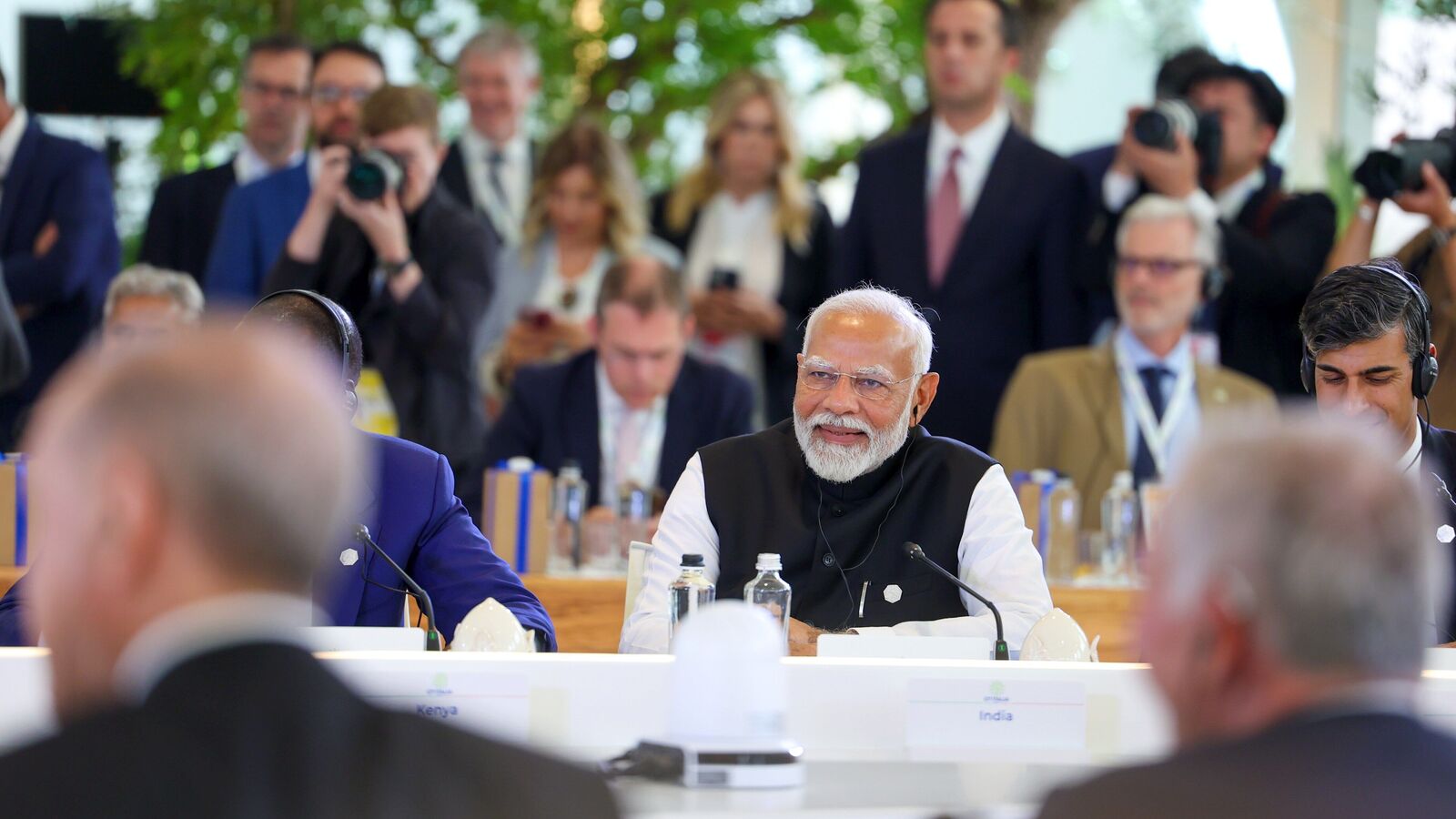Trade Tensions: G7 Fails To Address Tariff Concerns

Table of Contents
Failure to Reach Consensus on Tariff Reduction
The lack of agreement amongst G7 nations regarding tariff reduction strategies underscores the deep divisions in the current global trade landscape. The G7 summit, intended to foster cooperation and address shared challenges, ultimately proved ineffective in bridging the significant gaps between member states' approaches to trade policy.
- Significant Disagreements: Major economies, notably the US and the EU, remain deeply divided on the optimal path toward tariff reduction. Differing views on the appropriate balance between protectionist measures and free trade continue to hamper progress.
- Absence of Concrete Commitments: The summit failed to produce concrete commitments for substantial tariff reductions across various sectors. This lack of decisive action leaves businesses facing continued uncertainty and limits their ability to plan for the future.
- Conflicting National Interests: Differing national interests and priorities played a significant role in hindering progress toward a unified approach to tariff reduction. Each nation prioritizes its own economic and political objectives, making it challenging to achieve a consensus that benefits all members equally. This highlights the inherent complexities of international trade agreements.
The Impact of Existing Tariffs on Global Trade
The existing tariffs imposed by various nations are already having a profound negative effect on global trade and various economic sectors. These trade barriers are disrupting established supply chains, increasing production costs, and ultimately driving up prices for consumers.
- Supply Chain Disruptions: Tariffs lead to significant disruptions in global supply chains, forcing businesses to re-evaluate sourcing strategies and potentially increasing transportation costs. This added complexity increases uncertainty and reduces efficiency in international trade.
- Increased Production Costs: The added cost of imported goods due to tariffs directly translates to increased production costs for businesses relying on foreign inputs. This can diminish competitiveness and potentially lead to job losses in affected sectors. Examples include the automotive and technology industries, heavily reliant on international supply chains.
- Higher Consumer Prices: The impact of tariffs ultimately extends to consumers, who often face higher prices for goods and services due to increased production and transportation costs. Inflationary pressures are exacerbated, further impacting economic growth and consumer purchasing power.
Alternative Solutions and Future Prospects for Addressing Trade Tensions
Given the G7's failure to reach a consensus, exploring alternative solutions to manage and ultimately reduce trade tensions is crucial. A multi-faceted approach involving multilateral and bilateral cooperation is necessary.
- WTO Reform: Strengthening and reforming the World Trade Organization (WTO) is paramount. Addressing the WTO's shortcomings in dispute resolution and enforcement mechanisms is crucial for promoting a fairer and more predictable global trading system.
- Bilateral Trade Deals: While multilateral agreements are ideal, the pursuit of bilateral trade deals between individual nations can offer a more flexible approach to resolving specific trade disputes and reducing tariffs on a smaller scale. Such agreements can serve as building blocks toward broader cooperation.
- Future G7 Cooperation: Despite the recent setback, continued dialogue and cooperation among G7 nations are essential for addressing trade concerns. A renewed commitment to finding common ground is crucial for fostering a stable global trading environment. This will require a willingness to compromise and prioritize the collective benefit over individual national interests.
The Long-Term Economic Ramifications of Unresolved Tariff Disputes
The G7's inaction on tariff concerns carries significant long-term economic ramifications, posing considerable risks to global economic stability.
- Risk of Global Trade War: The continued escalation of tariff disputes raises the risk of a full-blown global trade war, characterized by widespread retaliatory tariffs and severe disruptions to international commerce.
- Impact on Economic Growth: A global trade war could severely hamper global economic growth, leading to reduced investment, decreased consumer spending, and potential economic recession in multiple countries.
- Geopolitical Risks: Unresolved trade disputes can exacerbate geopolitical risks and tensions between nations, further undermining international cooperation and stability. This instability impacts investor confidence and international relations on a broad scale.
Addressing Lingering Trade Tensions and Tariff Concerns
The G7's failure to effectively tackle rising tariff concerns has significant implications for global trade, impacting supply chains, increasing prices, and threatening economic growth. The lack of consensus on tariff reduction, coupled with the existing negative impacts of tariffs on global trade, necessitates a proactive and multifaceted approach. The exploration of alternative solutions, such as WTO reform and bilateral trade agreements, is crucial. Understanding the complexities of trade tensions and tariff concerns is crucial. Stay updated on future G7 initiatives and advocate for policies that reduce tariff barriers and foster a more stable global trading environment. Ignoring these mounting trade tensions will only lead to further instability and ultimately harm the global economy.

Featured Posts
-
 Nouveau Siege Rtbf Galant Reclame L Historique Complet Du Dossier
May 26, 2025
Nouveau Siege Rtbf Galant Reclame L Historique Complet Du Dossier
May 26, 2025 -
 Top 10 British Pop Culture Movies You Must See
May 26, 2025
Top 10 British Pop Culture Movies You Must See
May 26, 2025 -
 Sinners Louisiana Filmed Horror Movies Theatrical Debut
May 26, 2025
Sinners Louisiana Filmed Horror Movies Theatrical Debut
May 26, 2025 -
 Tour Of Flanders 2024 Pogacar And Van Der Poels Epic Battle
May 26, 2025
Tour Of Flanders 2024 Pogacar And Van Der Poels Epic Battle
May 26, 2025 -
 Apres Laurent Baffie Thierry Ardisson Revele La Verite Sur Tout Le Monde En Parle
May 26, 2025
Apres Laurent Baffie Thierry Ardisson Revele La Verite Sur Tout Le Monde En Parle
May 26, 2025
